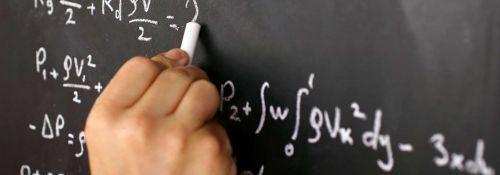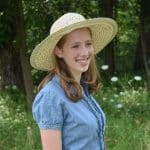
A Math Class Like No Other
Written by Katarzyna Ignatik
As a likely English major, I have never particularly loved mathematics. I did what I could to avoid taking a math class at Hillsdale. But college policy changed just this year, and so every student—regardless of his or her major or standardized test scores—now has to take a math class on campus.
I resigned to taking “Mathematics and Deductive Reasoning” and mentally prepared myself for a humdrum course about calculation and repetitious algebraic processes. (And what did “deductive reasoning” even mean?)
From the start, however, my math class was nothing like what I expected. Our first assignment was a short essay. Since when do students write in a math class? Furthermore, my professor mentioned in passing that mathematical calculation was not his specialty. I was taken aback. I thought that calculation was all math people did.
My confusion intensified when for the first half of the semester my classmates and I focused on constructing logical syllogisms and detecting errors in reasoning. We solved logic puzzles including the Lewis Carroll puzzle, where we cut through the wording of a fantastically-constructed train of reasoning to string together premises and find an equally fantastic (but completely logical) conclusion. It was all interesting, but I felt a little guilty. The lack of calculations kind of felt like cheating, and I didn’t really think you could call logic and puzzles “math.”
Then in the second half of the semester, we began reading Euclid’s Elements, one of the oldest and most widely recognized geometry textbooks in history. The proofs in this book looked strikingly similar in form to what we’d been doing before. I realized that many of the logical strategies I’d been using in the logic section of the course were subtly helping me understand Euclid’s explanations. The fun and games had strengthened my sense of logic.
The critical thinking learned from this class seeped into other pursuits too—such as writing essays, analyzing news articles, and engaging in friendly arguments in the cafeteria. This grounding in analytical thought wasn’t useful just for math. If I hadn’t taken this math class, I might never have discovered some of the flaws in my own logical thought.
I realized this is why Hillsdale includes a math class in its core. In a liberal arts education, our minds are opened to beauty through different modes and forms—not only through language, but also through numbers and planes. To be well rounded in our study of truth, we should study the analytical aspect of thought, and the physical and abstract workings of the universe. Plus, pure mathematics isn’t just about calculation, as primary school experiences led me to assume. It’s a huge field full of mind-blowing revelations and predictable unpredictability. And besides all this, it’s beautiful and ordered in itself.
So, when you take the math course at Hillsdale, get ready to puzzle over knights and zombies, and tell your friends not to be concerned if you start sending them Pythagorean proof diagrams (true story).
 Katarzyna Ignatik is an English major in the class of 2020. She spends her time doing homework (of course), binge-reading, binge-writing, singing, and laughing at everything and anything. Talk to her about Tolkien, the 50s, or abstract philosophical concepts, and she’ll be perfectly happy.
Katarzyna Ignatik is an English major in the class of 2020. She spends her time doing homework (of course), binge-reading, binge-writing, singing, and laughing at everything and anything. Talk to her about Tolkien, the 50s, or abstract philosophical concepts, and she’ll be perfectly happy.